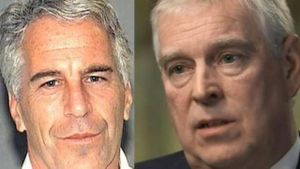OpenAI, the leading artificial intelligence company backed by Microsoft, is entangled in a significant legal battle with India's ANI news agency over allegations of copyright infringement. This case marks one of the most observed lawsuits concerning artificial intelligence usage within India, testing the boundaries of international law and copyright issues.
ANI challenges OpenAI, accusing it of utilizing the agency's published content without permission to train its ChatGPT model. The lawsuit was initiated by ANI at the Delhi High Court back in November, fueling discussions about the extent to which AI can leverage publicly available data from news outlets. OpenAI has since responded to the allegations, asserting they are unsubstantiated and reiterates their commitment to ethical data practices.
According to Reuters, OpenAI's legal filing, dated January 10, emphasized the company's position: any order from the Indian court to delete data related to its training would conflict with its legal requirements under U.S. law. The company stated, “OpenAI has told an Indian court... would be inconsistent with its legal obligations in the United States.” This highlights the complex interplay between global AI operations and localized legal frameworks.
During the proceedings, OpenAI argued it lacks jurisdiction over the case, citing its absence of any physical office or permanent establishment within India. The company stated, “The company has no office or permanent establishment in India... the servers on which (ChatGPT) stores its training data are similarly situated outside of India.”
ANI's response to these assertions has been firm. The agency maintains the belief it is within the jurisdiction of the Delhi court to adjudicate the matter and plans to file a detailed response. ANI feels the situation exposes the risks of unfair competition. Their concerns were heightened by OpenAI's recent partnerships with other media organizations, which they argue may not only stifle fair competition but also impact content rights adversely.
OpenAI has previously faced criticism over its practices, with several copyright holders claiming the company has misappropriated their content for training AI models. Recently, the New York Times also filed litigation against OpenAI for similar reasons, reflecting growing apprehensions among content creators about their intellectual property rights.
OpenAI maintains its commitment to fair use, repeatedly denying allegations of wrongful usage, and states, “OpenAI has repeatedly denied the allegations, saying its AI systems make fair use of publicly available data.” This principle of fair use is at the crux of much of the debate surrounding AI capabilities.
Even with the legal hurdles, OpenAI is aggressively pursuing its business ambitions. The company is transitioning from non-profit to for-profit status to attract substantial investment, having already raised $6.6 billion last year. The race for AI dominance is fierce, and OpenAI appears poised to solidify its position.
The court is scheduled to hear the case on January 28, and the outcome could have significant ramifications, not just for OpenAI and ANI, but for the broader dialogue concerning AI's impact on copyright laws globally. The legal ruling may also influence how AI companies conduct their business operations going forward.
Both parties continue to prepare for the upcoming hearing, setting the stage for what promises to be a noteworthy legal episode as artificial intelligence interfaces increasingly collide with content ownership. How this case is resolved could reshape the legal landscapes for AI technologies and their relationship with traditional media.



